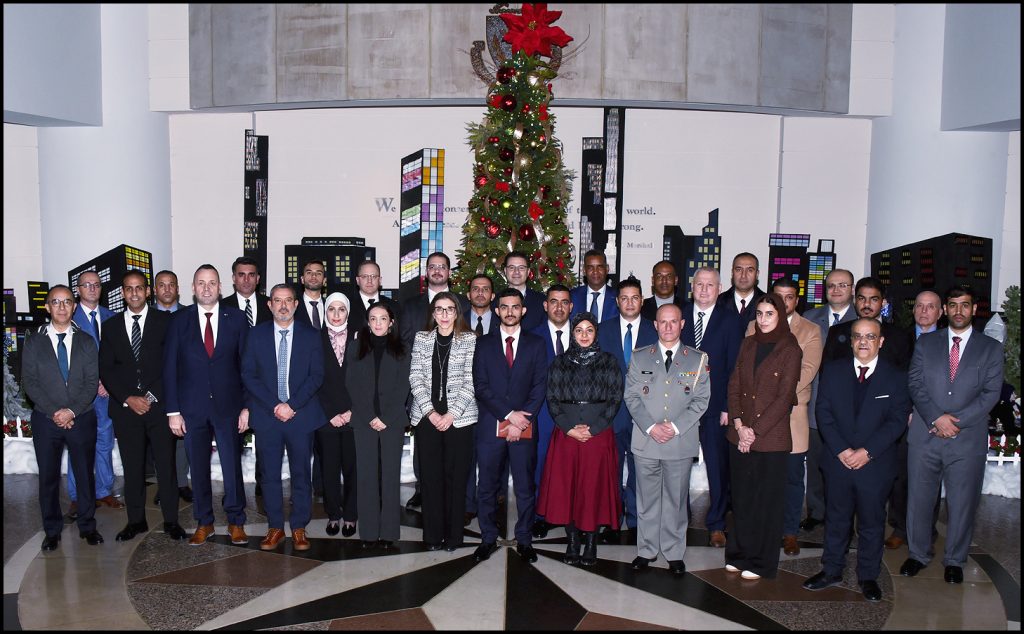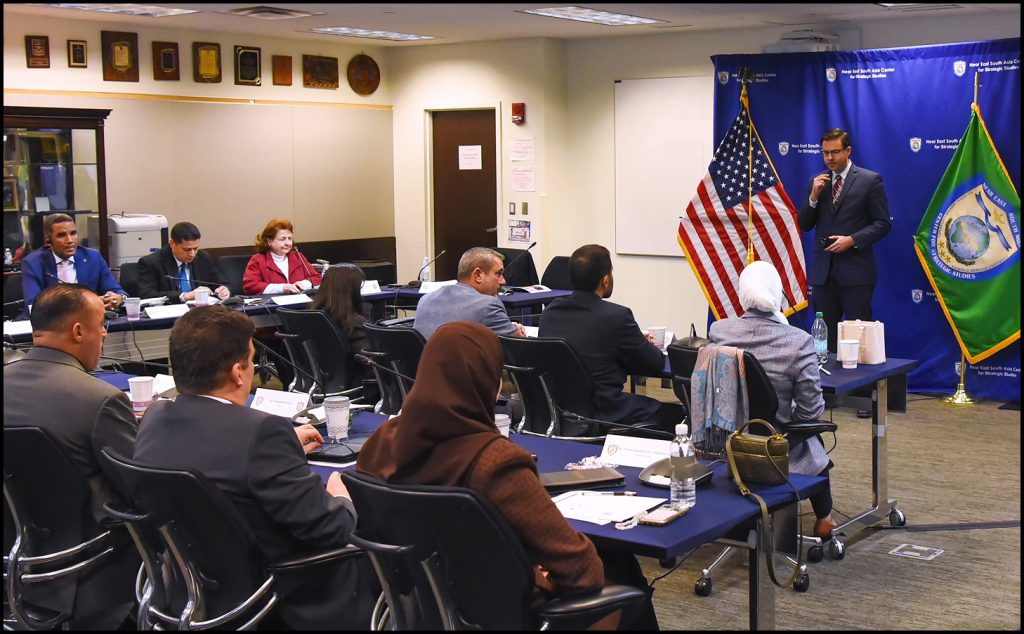Executive Seminar: Conflict Resolution, Cooperation, and Challenges in the MENA Region
December 20, 2024 2025-03-16 14:03Executive Seminar: Conflict Resolution, Cooperation, and Challenges in the MENA Region
Executive Seminar: Conflict Resolution, Cooperation, and Challenges in the MENA Region
From 9–13 December 2024, the Near East South Asia (NESA) Center for Strategic Studies hosted an Executive Seminar entitled “Conflict Resolution, Cooperation, and Challenges in the MENA Region” in Washington, D.C. Led by Dr. Michael Sharnoff, the seminar focused on emerging dynamics in the MENA region and assessed opportunities for creating conditions for resolving differences. The event included 31 participants from Albania, Algeria, Bosnia and Herzegovina, Canada, Egypt, Iraq, Italy, Jordan, Kosovo, Lebanon, Libya, Mauritania, Morocco, Oman, Saudi Arabia, Türkiye, and the United States, and provided a venue for partners to listen, learn, network and explore constructive arrangements and collaboration opportunities.

The seminar was laid out in a “building block” series of sessions and presentations. Each day represented a different conflict resolution theme, with a keynote session on the first day to address conflicts and security future challenges. The second day examined security cooperation and regional alliances and how to build and sustain security cooperation in a fragmented region. The third day explored emerging threats and challenges and how to navigate the complex security landscape of the MENA region. The fourth and fifth days examined pathways to sustainable peace and cooperation, as well as constructive regional ideas to bring the MENA region closer together.

The NESA Center distributed an interactive exercise on Day 1 for participants to identify their top five security challenges in prioritized order. On Day 2, the NESA Center led a discussion with participants to discuss what they broadly have in common, and on Day 3, participants discussed what threat topics they selected and how and why they ranked them. On Day 4, participants addressed how they could build on what they shared to address the issues identified as top concerns, and on Day 5, the group examined what participants thought could be done collaboratively by countries in the MENA region to overcome these challenges and priorities.
Course Director Dr. Michael Sharnoff and Deputy Course Director Professor Anne Moisan led the seminar. Participants from defense, security, and diplomatic establishments were encouraged to explore and self-identify areas of cooperation and areas of disagreement and develop proposals to promote progress. By hearing different viewpoints and voices and establishing personal relationships, participants were able to constructively explore ways to advance cooperation and strengthen trust as a strategic national interest for all parties. All discussions were held off-the-record under the Chatham House Rule of non-attribution.







